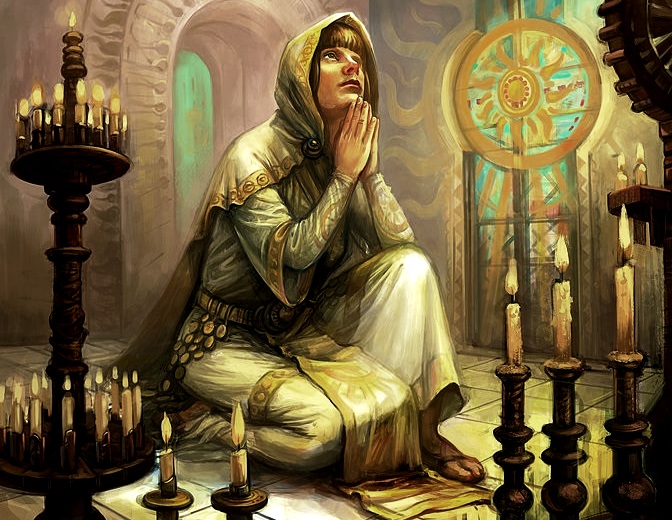Theology & Customs (sage field)
Theology & customs is a sage field available to clerics, granting the knowledge and authority to perform sacred rites, guide religious observances and uphold the traditions of their faith. The field focuses upon the long-term influence of religious practice, fostering devotion and reinforcing the moral and spiritual structure of the community. Through the study of theology, the cleric gains a deeper understanding of doctrine, philosophy and the divine order, allowing them to interpret sacred texts, resolve theological disputes and ensure that rituals are properly observed. Customs, on the other hand, govern the outward expressions of faith — festivals, funerary rites, sacraments and the everyday religious practices that bind congregations together. Customs, on the other hand, govern the outward expressions of faith — festivals, funerary rites, sacraments and the everyday religious practices that bind congregations together.
Contents
Because of its scope, Theology & Customs serves as a foundation for much of the world's social structure. It defines not just personal belief, but the expectations placed upon societies, rulers and institutions. It determines which actions are lawful or heretical, what celestial events mean for governance and how faith is ritualized to maintain social order. It is the study of how divine and human structures interact in law, governance and the daily lives of the people.
The manner in which religious institutions function and what behaviors are expected of clergy and followers, better informs the character about what's expected and typical of the religion they've chosen, providing guidance on how to employ it as an active, structured force within the game world.
Studies
The field includes the following sage studies:
- Astronomy & Astrology: allows the character to study celestial movements, track planetary alignments and interpret astronomical phenomena to understand the universe’s structure and rhythms. This knowledge provides insight into seasonal cycles, omens and the greater cosmic forces believed to influence mortal life.
- Gods: grants knowledge of divine entities central to religious beliefs, including their nature, domains, relationships and the traditions that define their worship. This understanding extends to sacred texts, doctrines and the role of deities in shaping laws, rituals and the expectations of their followers.
- Law & Policy: examines the structure of theological laws and their application, enabling the strict enforcement of a deity's will among believers. This includes the interpretation of doctrine, the role of religious courts, the authority of clergy in legal matters and the consequences for those who defy or misinterpret sacred mandates.
- Ritual: encompasses the philosophical and ethical duties that define a religion's engagement with the broader community. This includes the performance of ceremonies, sacraments and rites that reinforce social bonds, mark significant life events and uphold moral teachings, ensuring the faith remains a visible and integral part of daily life.
